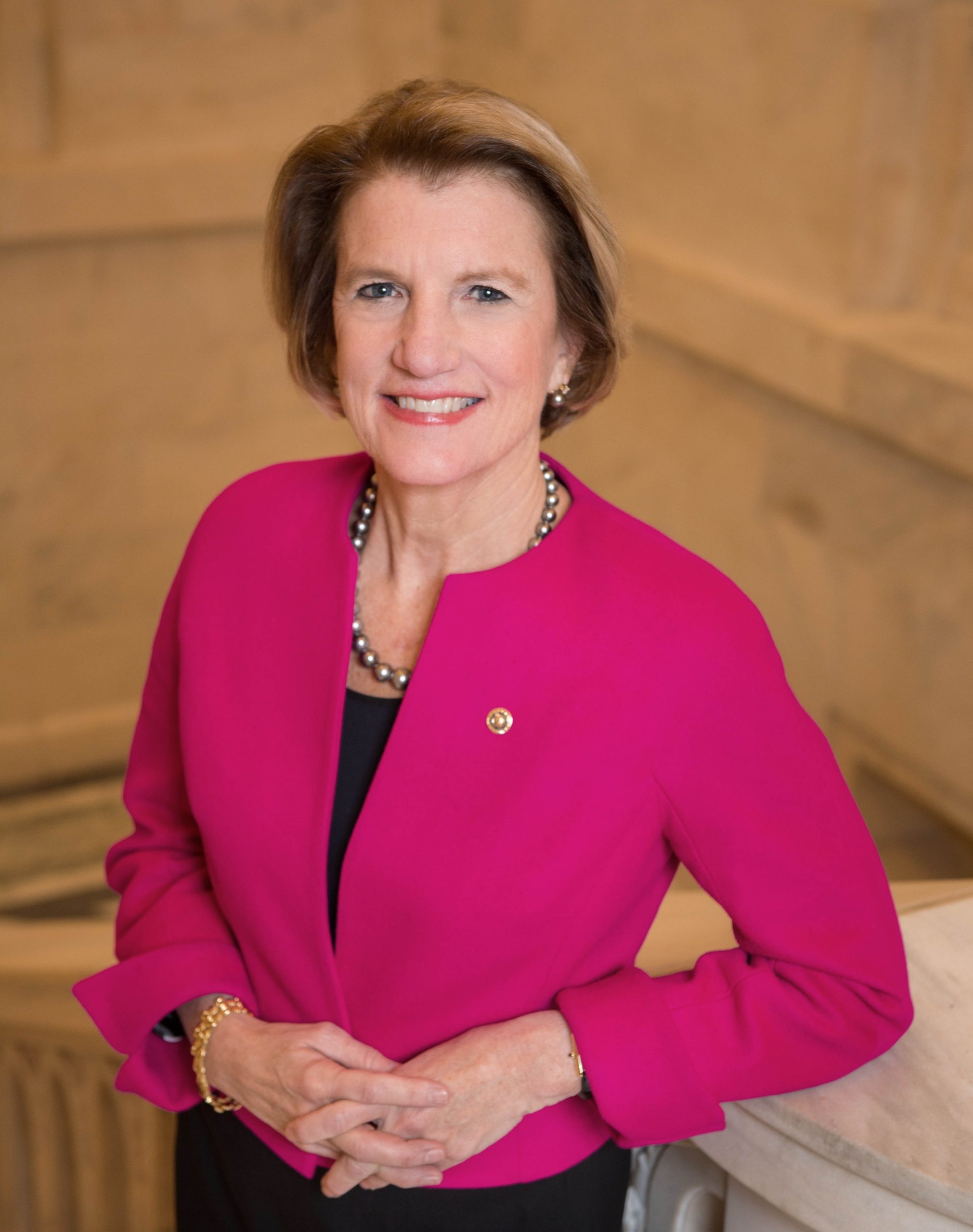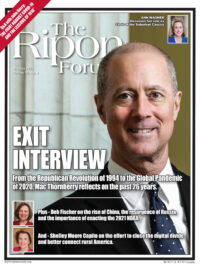 Our nation has experienced a difficult year because of the coronavirus pandemic, and this has forced Americans to reckon with the digital divide in our country.
Our nation has experienced a difficult year because of the coronavirus pandemic, and this has forced Americans to reckon with the digital divide in our country.
With the new norm of telework, virtual learning, and telehealth appointments, affordable and reliable service is more critical than ever.
While we’ve seen progress, too many West Virginians still lack access to high speed broadband.
I’ve always said if we can communicate with humans on the moon, surely we can find a way to deliver reliable broadband here on Planet Earth. This is one of the reasons I launched my Capito Connect initiative in 2015 as a way to tackle this.
The three-part plan accomplishes this goal by understanding the benefits of connectivity, fostering collaboration between government and the private sector, and promoting economic growth through innovation.
Since launching this initiative, I have taken several steps to increase connectivity and bridge the digital divide. I’ve heard from thousands of West Virginians during a state-wide listening tour, hosted roundtable discussions, released a guidebook to help communities understand the federal resources available, and coached West Virginians on these opportunities.
If we can communicate with humans on the moon, surely we can find a way to deliver reliable broadband here on Planet Earth.
The reality is that broadband in rural areas like West Virginia is extremely expensive and buildout takes more time to complete because of our mountainous terrain. But even with these obstacles, I’ve been working to leverage federal resources to help produce this infrastructure.
The Trump Administration has made rural broadband a priority, and several agencies have stepped up to the plate to help, such as the U.S. Department of Agriculture (USDA)and the Federal Communications Commission (FCC).
Last month, I was in rural Preston County witnessing the installation of broadband service in Beverly and Jeff Stemple’s house, thanks to USDA’s Community Connect program. The Stemples are one of 1,300 households and approximately 3,500 people in the proposed funded service area.
The Community Connect Program has historically been a utilized source of funding for broadband projects in the state; however, between 2011 and 2015, there were no successful awards or applications submitted in the state.
Introducing state and local governments to the federal opportunities available is an important part of my job, and it’s a key part of the Capito Connect initiative.
Since the launch of my Capito Connect initiative, both applications and awards for the Community Connect program have increased.
In the last four years, multiple applications for funding have been submitted, and there have been four successful applications totaling nearly $11 million.
Now, Beverly and Jeff can effectively work from home and communicate online with loved ones who live far away.
Coronavirus has also put a premium on telehealth services. Just last week, I visited Lincoln Primary Care Center (LPCC) that received an FCC telehealth grant. With this grant, LPCC was able to purchase telehealth “terminals” – specialized computer stations for online checkups.
Telehealth is reducing costs and improving outcomes for patients everywhere. Because of the pandemic, we better understand how important telehealth is to bring high-quality care directly to patients in their homes.
So, what’s next? How can we build on this progress? How do we apply the lessons we’ve learned during COVID to strengthen connectivity?
One major undertaking is improving broadband maps with more granular data. Far too often, these maps show rural areas that are “covered,” but we know—by living in and driving through these areas—that this is not the case.
This connectivity conundrum affects nearly every state, and lawmakers on both sides of the aisle are eager to work on solutions together.
This data collection and correction is a tedious but crucial step, as these data maps often determine funding levels and what areas get prioritized.
As co-chair of the Senate Broadband Caucus, I co-sponsored the Broadband DATA Act, which President Trump signed into law in March.
This law will lead to the creation of a singular federal broadband map with new, more granular data collected by the FCC and shared with other federal agencies that provide broadband funding support, like NTIA and USDA. Furthermore, it creates a challenging process for state and local governments, consumers, and third parties to submit their own data to more accurately reflect the coverage in their areas. Lastly, the bill requires a regular audit of the data submitted by providers and allows for crowdsourcing to verify and supplement coverage data submitted by providers.
Another step forward would be dovetailing road infrastructure with fiber buildout. We all recognize broadband as infrastructure. A “dig once” approach would save time and money: as improvements are being made to roads and highways, fiber conduit should be installed simultaneously.
The good news is this connectivity conundrum affects nearly every state, and lawmakers on both sides of the aisle are eager to work on solutions together.
I expect investments in broadband — particularly for schools and medical providers — to be part of any future coronavirus relief package.
Perhaps one upside of this pandemic is that it has made us better appreciate the time we can physically spend with each other.
That human connection is so important, which makes our work on broadband all the more important now. House-by-house and mile-by-mile, I’ll continue working to close the digital divide in West Virginia and across the country.
Shelley Moore Capito is the Junior U.S. Senator from the State of West Virginia. She serves as Co-chair of the Senate Broadband Caucus.




